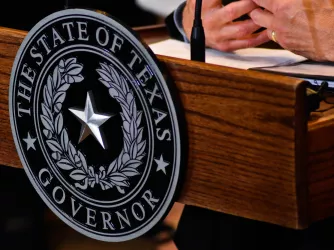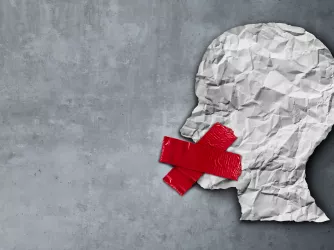Table of Contents
A Thoughtful Critique of New Jersey’s Anti-Bullying Law
A couple of weeks ago, I had the pleasure of being a panelist in a symposium on New Jersey's Anti-Bullying Bill of Rights organized by the Seton Hall Legislative Journal at Seton Hall School of Law. I was joined by Professors Jane Yakowitz and Derek Bambauer of Brooklyn Law School, and our panel focused on the intersection of New Jersey's anti-bullying initiative and the First Amendment.
If you've talked to me recently, you already know that I had a blast. It's a lot of fun to discuss student speech law with smart, witty folks, and that's definitely an apt description of Jane and Derek. Best of all, both professors left me with a lot to think about on the train ride home. As such, I'm really pleased to see that Professor Bambauer has posted a blog entry based on the notes from his panel presentation over at Concurring Opinions (crossposted at Info/Law). I'm tempted to excerpt close to all of it here—but I'd like you to read the whole thing, so I'll exercise some restraint and limit myself to just one of the several excellent points made therein.
Professor Bambauer begins by noting that the Anti-Bullying Bill of Rights, however well-intended, is problematically sweeping in its prohibition of protected student speech. For example, it effectively outlaws students from quoting The Simpsons Groundskeeper Willie on the French ("cheese-eating surrender monkeys") or singing South Park: Bigger, Longer, and Uncut's classic "Blame Canada" while involved in school activities, lest fellow students take offense. Professor Bambauer then makes a crucial additional critique that illustrates a fundamental problem with New Jersey's legislative approach here. Not only is the law overbroad, which is of course worrying in and of itself, but this overbreadth also brings with it unintended consequences, such as foreclosing the type of "positive" peer social pressure that the law's authors might actually want to encourage:
The First Amendment inculcates a healthy skepticism towards government actions that sanction speech based on its content. The [Anti-Bullying Bill of Right]'s goal is laudable: it seeks to avoid physical or emotional harm to students. However, the Constitution mandates sizeable leeway for emotionally harmful speech, for at least two reasons. First, sharp debate is more likely to engage listeners and, perhaps, change minds. Consider the raw language used in discussions over the Vietnam War, or the adoption of federal health care legislation.
Second, and more relevant here, social sanctions through criticism or opprobrium are powerful and often beneficial means of shaping behavior. Consider teen anti-smoking campaigns: peer pressure is an effective inducement to quit a harmful habit. Yet targeting someone for being a smoker counts as focusing on an "actual characteristic" under the anti-bullying law. The ABBR threatens to impede or punish individual and collective expression that can generate helpful shifts in behavior, from evincing greater toleration for people of different sexualities to political outreach. The difficulty is that there is no principled means to distinguish between social sanctions that enforce norms we like, and bullying that enforces norms we do not. It would be unlawful for Viki Knox to critique LGBT month in her school, and unlawful for students to criticize her for those beliefs.
Thus, the ABBR has only two stable outcomes: a school free of such expression and activity, or one where penalties against it are at the discretion of school officials, who may have idiosyncratic views regarding favored and disfavored speech. The former creates a highly artificial school environment — one hermetically sealed against the realities and controversies of life outside the schoolyard gates. The latter creates the perils of censorship based on a principal's own preferences on what speech counts as right or wrong.
This is a terrifically useful and clear distillation of the unforeseen problems caused when (presumably well-meaning) legislators empower (hopefully equally well-meaning) school officials to draw lines distinguishing "good" speech from "bad."
I'm indebted to Professor Bambauer for this post; I know I'll be referring to it often. Go check it out in its entirety!
Recent Articles
FIRE’s award-winning Newsdesk covers the free speech news you need to stay informed.

Gov. Greg Abbott’s order ‘hardening state government’ against China is dangerously hard to parse

Right, left, and in-between: Can we bring our differences to the table?

From the UK to Germany to Singapore: Police are watching what you post
